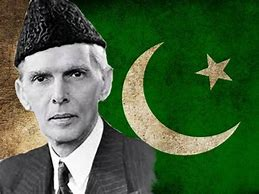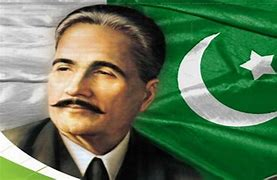Pakistan
Pakistan is a country located in South Asia, bordered by
India to the east, Afghanistan to the west and north, Iran to the southwest,
and China to the northeast. It was formed as an independent country in 1947,
when British India was partitioned into India and Pakistan.
Pakistan is the world's fifth-most populous country, with a
population of over 225 million people. The capital of Pakistan is Islamabad,
and its largest city is Karachi. Urdu is the national language, but English is
widely spoken and understood.
Pakistan has a rich cultural heritage, with influences from
Persian, Arab, and Central Asian cultures. Its people are known for their
hospitality and love of food, music, and sports. Cricket is the most popular
sport in Pakistan, and the national cricket team is one of the strongest in the
world.
The economy of Pakistan is mainly based on agriculture, but
it also has a significant industrial sector, including textiles, cement, and
steel production. Pakistan is also known for its natural resources, including
coal, natural gas, and oil.
Pakistan faces several challenges, including poverty,
corruption, and terrorism. It has also had a strained relationship with India
over the years, with both countries engaged in territorial disputes and
occasional military conflicts. However, Pakistan is also an important regional
player and has played a key role in facilitating peace talks in Afghanistan.
Overall, Pakistan is a complex and diverse country with a
rich history and culture, as well as its own set of challenges and opportunities.
Why is Pakistan separate from the subcontinent
Pakistan is a separate country from the Indian subcontinent
due to several historical, social, and political factors. The movement for a
separate homeland for Muslims in India gained momentum in the early 20th
century, fueled by a growing sense of alienation and discrimination against the
Muslim community by the Hindu-dominated Indian National Congress.
In 1940, the All India Muslim League passed the Lahore
Resolution, which called for the creation of a separate Muslim state in the
northwestern and northeastern regions of India. The demand for a separate
homeland for Muslims was based on the idea that they were a distinct religious
and cultural community with a separate identity and needed a separate state to
protect their rights and interests.
After years of political negotiations and struggles, Pakistan
finally became an independent state on August 14, 1947. The partition of India
resulted in widespread violence, mass migration, and loss of life, but it also
paved the way for the creation of two separate states- India and Pakistan.
Today, Pakistan is a separate country with its own culture,
language, history, and political identity. Despite shared cultural and
historical ties with India, Pakistan has a unique identity and a distinct place
in the region.
The founder of Pakistan
The founder of Pakistan is Muhammad Ali Jinnah, also known as
Quaid-e-Azam (Great Leader). He was born on December 25, 1876, in Karachi,
which was then a part of British India.
Jinnah was a prominent lawyer and politician who fought
tirelessly for the rights of Muslims in India. He believed that Muslims needed
a separate nation to protect their political, social, and economic interests.
In 1940, Jinnah proposed the idea of a separate Muslim state,
which became known as Pakistan. He was the leader of the All India Muslim
League, which worked towards this goal.
Jinnah negotiated with the British government and the Indian
National Congress to achieve Pakistan's independence in 1947. He became the
first Governor-General of Pakistan, serving until his death on September 11,
1948.
Jinnah is considered the father of the nation in Pakistan,
and his legacy continues to inspire generations of Pakistanis. He is remembered
for his leadership, dedication, and commitment to the cause of creating a
separate homeland for the Muslims of India.
The role of allama iqbal in the independence of Pakistan
Allama
Muhammad Iqbal is considered one of the founding fathers of Pakistan and is
widely recognized for his instrumental role in inspiring and mobilizing the
Muslims of India towards the creation of an independent Muslim state. He was a
philosopher, poet, and politician who advocated for the rights of the Muslims
and played a significant role in shaping the ideology of Pakistan.
Iqbal's
contributions to the independence of Pakistan can be traced back to his
writings and speeches, which articulated the need for a separate Muslim state.
His famous Allahabad address in 1930, in which he proposed the idea of a separate
Muslim state, is widely regarded as a pivotal moment in the history of the
Indian subcontinent. Iqbal argued that Muslims could not coexist with Hindus
within a single state, and that they needed a separate state where they could
practice their religion freely and protect their cultural identity.
Iqbal's
poetry also played an important role in inspiring the Muslim community and
promoting the idea of a separate Muslim state. His works such as
"Asrar-e-Khudi" (Secrets of the Self) and "Bang-e-Dra" (The
Call of the Marching Bell) encouraged Muslims to take pride in their cultural
heritage and to work towards the establishment of a separate state.
Iqbal's
political activism was also instrumental in the independence of Pakistan. He
was a member of the All India Muslim League and worked closely with its leader,
Muhammad Ali Jinnah, to promote the cause of a separate Muslim state. He played
a key role in the negotiations that led to the creation of Pakistan, and his
ideas and vision for an independent Muslim state were reflected in the
country's constitution.
In
conclusion, Allama Iqbal's role in the independence of Pakistan cannot be
overstated. He was a visionary leader who played a pivotal role in shaping the
ideology of Pakistan and inspiring the Muslim community to work towards the
creation of an independent Muslim state. His ideas and vision continue to
influence the political and cultural landscape of Pakistan to this day.
The list of prime ministers in Pakistan till independence
Pakistan became an independent state on August 14, 1947,
after the partition of India. Since then, the country has had several prime
ministers, each of whom has contributed to the nation's political, economic,
and social development. Here's a list of prime ministers in Pakistan after
independence:
Liaquat Ali Khan (1947-1951)
Khawaja Nazimuddin (1951-1953)
Mohammad Ali Bogra (1953-1955)
Chaudhry Mohammad Ali (1955-1956)
Huseyn Shaheed Suhrawardy (1956-1957)
Ibrahim Ismail Chundrigar (1957)
Sir Feroz Khan Noon (1957-1958)
Nurul Amin (1971-1973)
Zulfikar Ali Bhutto (1973-1977)
Muhammad Khan Junejo (1985-1988)
Benazir Bhutto (1988-1990)
Nawaz Sharif (1990-1993)
Balakh Sher Mazari (1993)
Nawaz Sharif (1993-1996)
Miraj Khalid (1996-1997)
Nawaz Sharif (1997-1999)
Zafarullah Khan Jamali (2002-2004)
Chaudhry Shujaat Hussain (2004-2007)
Shaukat Aziz (2004-2007)
Yousaf Raza Gillani (2008-2012)
Raja Pervaiz Ashraf (2012-2013)
Nawaz Sharif (2013-2017)
Shahid Khaqan Abbasi (2017-2018)
Imran Khan (2018-Present)
Each prime minister has had a unique vision and approach to
governance, with some achieving significant successes while others facing
significant challenges. The list includes prominent names like Zulfikar Ali
Bhutto, who implemented significant social and economic reforms, and Nawaz
Sharif, who oversaw infrastructure development and economic growth. The current
Prime Minister, Imran Khan, has promised to focus on anti-corruption efforts,
poverty reduction, and economic development during his tenure.
How many percent Pakistani are educated
As of 2021, the literacy rate in Pakistan is estimated to be
around 63%, which means that approximately 37% of the population is considered
to be illiterate.
However, it is important to note that literacy rate and
educational attainment are not the same thing. While someone who is literate
can read and write, they may not necessarily have completed a formal education.
According to the UNESCO Institute of Statistics, as of 2018,
the gross enrollment ratio (GER) in Pakistan for primary education was 92.7%,
for lower secondary education was 54.8%, and for upper secondary education was
30.3%. The GER measures the total enrollment in a specific level of education,
regardless of age, as a percentage of the eligible age group in that level of
education.
Therefore, while the exact percentage of educated people in
Pakistan is difficult to determine, we can estimate that a significant portion
of the population has received some form of formal education, particularly at
the primary level.
The most popular dishes in Pakistan
Pakistan is a country with a diverse culinary tradition that
reflects its cultural and regional influences. Here are some of the most popular
dishes in Pakistan:
Biryani: Biryani is a rice-based dish that originated in the
Indian subcontinent. It is made with spices, meat (usually chicken or beef),
and rice, and is often served with raita (a yogurt-based sauce) and salad.
Haleem: Haleem is a popular dish in Pakistan, especially
during the holy month of Ramadan. It is a slow-cooked stew made with wheat,
lentils, meat (usually beef or mutton), and a variety of spices.
Nihari: Nihari is a spicy stew made with slow-cooked beef or
lamb, bone marrow, and a variety of spices. It is often served with naan (a
type of bread) and garnished with chopped onions and cilantro.
Kebabs: Kebabs are a staple in Pakistani cuisine and come in
many varieties, including seekh kebab (spiced ground beef or lamb grilled on
skewers), shami kebab (made with ground meat, lentils, and spices), and chapli
kebab (made with ground beef or lamb and a variety of spices).
Karahi: Karahi is a spicy dish made with chicken or mutton
cooked in a wok-like pan with a variety of spices, tomatoes, and green chillies.
It is often served with naan or rice.
Saag: Saag is a dish made with leafy greens (usually spinach
or mustard greens) and spices. It is often cooked with meat (usually chicken or
lamb) and served with naan or rice.
Bihari Boti: Bihari Boti is a type of kebab made with
marinated beef or lamb and grilled to perfection. It is often served with naan
and a variety of chutneys.
These are just a few of the many delicious dishes that are
popular in Pakistan. Each region of the country has its own unique culinary
tradition, so there is always something new and exciting to try.












No comments: